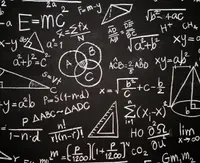
Real-Life Applications of Pie Charts
Real-life examples where the concept of pie charts is involved are:
Application 1: Demographic Distribution
Pie charts can be used to represent population distribution by age groups, gender proportions, or ethnic composition.
Application 2: Customer footfall
Pie charts can demonstrate the distribution of customers that visited a store on all weekdays.
Application 3: Profit and Expenditure
Pie charts can be used to analyze expenditure, sales turnover, profit, and exposure in the business field.
Pie Charts Aptitude Resources
The resources mentioned below can help you with your pie charts aptitude preparation.

1. Concepts
Learn important concepts related to pie charts. Once you begin comprehending what has to be assessed, you develop a better understanding of the nature of the questions.
View More
2. Formulas
Learn important formulas linked to the pie charts problems that can help you answer the questions quickly and develop a greater understanding of the concepts.
View More
3. Practice Problems
Practice sample problems related to the pie charts topic. A candidate is more likely to comprehend the concept and improve their speed and precision the more questions they practice.
View MoreFAQsFAQs
What are pie charts?
A pie chart represents the data in the circular graph. The visual representation uses slices of a pie to show the relative size of the data. Here, the term “pie” represents the whole, and the “slices” represent the parts of the whole. A pie chart requires a list of categorical and numerical variables.
How important is pie charts topic in placement examinations?
Pie charts topic carry medium weightage in the data Interpretation examinations.
Is pie charts difficult to learn?
No, pie charts topic is not difficult to understand. Students must practice pie charts on a daily basis and memorise formulas to address the problems accurately. Students must also learn different shortcuts & tricks to improve their solving speed.
What is the fastest and most effective way to learn the pie charts topic?
Students must understand the foundations and formulas of pie charts. They should be informed of the shortcuts and tricks for various types of questions on the topic. They must practice on a daily basis before taking a weekly mock exam.
What are the advantages of pie charts?
Pie charts have many advantages:
- Quick understanding and comparison to draw conclusions easily.
- Highlight dominant or significant categories by emphasizing their larger sector sizes.
- Optimal for representing percentages or fractions for a variable.
- simple and intuitive allowing quick comprehension.

